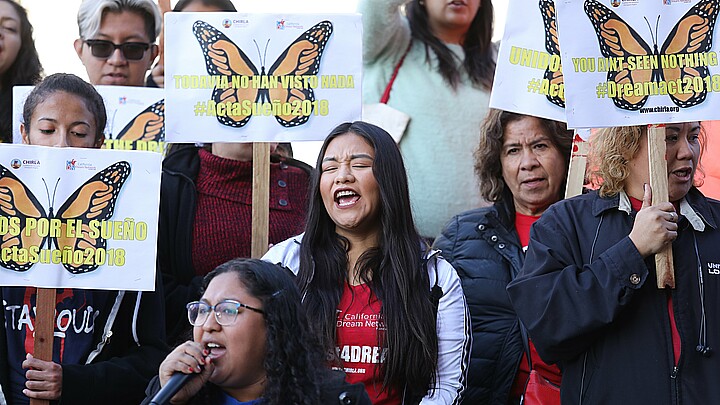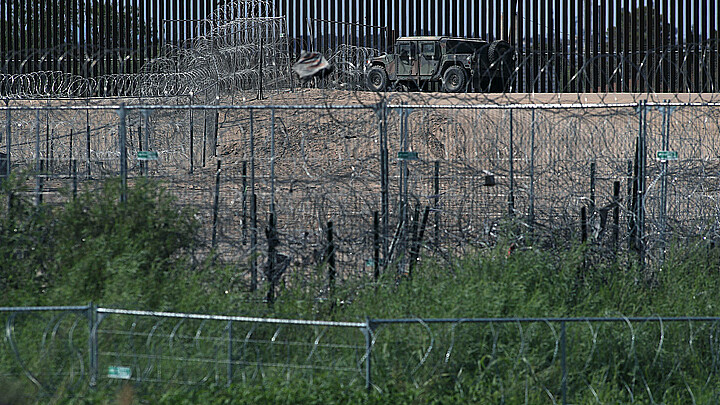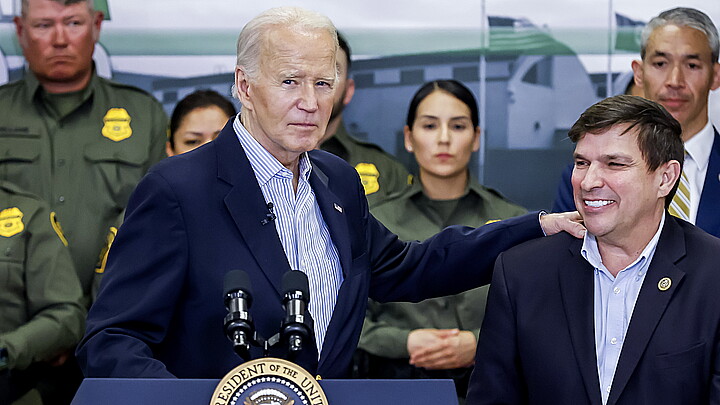Immigration
Biden administration's 'dedicated docket' targets migrant families for deportation
An internal Homeland Security memo said that certain deportations will not improve public perception of ICE or views around immigration enforcement
August 22, 2022 8:55am
Updated: August 22, 2022 6:36pm
President Joe Biden’s administration has encouraged Immigration and Customs Enforcement (ICE) to increase deportations of illegal migrant families with a secret ‘dedicated docket’ to increase deportation numbers, but the Dept. of Homeland Security has been reluctant to do so, according to recent reports.
The administration’s attempt to contain the southern border crisis came after Biden officials reversed Trump-era border policies and tightened the classifications for ICE arrests and deportations, resulting in widespread Republicans criticism of the southwest border crisis.
The result of such moves have forced U.S. officials to face a steady flow of about 200,000 migrant encounters a month for the past five months, and more than two million such encounters this fiscal year.
In Fiscal Year 2021, ICE arrested 74,082 undocumented migrants and deported 59,011, a huge slide from the previous year under President Donald Trump. In 2020, the enforcement agency arrested 103,603 and deported 185,884 non-citizens. In 2019, the agency had 143,099 arrests and 267,258 deportations.
While feeling the heat from powerful Congressional Republicans, the Biden White House has been pushing ICE to escalate deportations of undocumented migrant families under what they call a “dedicated docket” which targets those who crossed the border as part of a family unit, according to the Los Angeles Times.
“Launched by the Department of Homeland Security and Department of Justice in May 2021, the dedicated docket speeds up immigration cases from several years to about one year,” the Times reported. “Some within the administration saw it as a way to deter people from entering the U.S. by quickly executing deportation orders.”
About 60,000 have been placed on the docket since it was created in May 2021 according to the Times, but only 150 migrants have been deported as of July. The Department of Homeland Security has created new avenues for officials to deport undocumented migrants, including 48-hour deportations, fining those who remain and keeping some under effective house arrest in hotels.
But DHS has been reluctant to effectuate more deportations, according to an internal memo that says such moves create bad publicity for the agency.
“Picking up a kicking and screaming child while mom and/or dad are restrained and ushered to the transport vehicle will not improve public perception of ICE or views around immigration enforcement,” the internal memo says. It added that forcibly removing families appears to “conflict with the image of a new ICE” that many expected to take a holistic “approach to enforcement.”
As part of its investigation, the Times obtained comment from DHS spokeswomen Marsha Espinosa who said the dedicated docket also permits those eligible for asylum to get it quicker.
“At the same time, those who are found not to have a legal basis to stay in the U.S. are ordered to be removed more quickly,” Espinosa told the Times via email. “We are continuously discussing and considering new proposals to strengthen our broken immigration system.”
The Times also heard from a White House spokesperson who said the Biden administration was “working to process asylum claims expeditiously, granting relief where it is merited, and removing those found not to have a legal basis to remain in the United States.”
As part of its efforts to halt the tidal wave of migrants flowing to the southwest border, the Biden administration has been focusing on trying to hamper corruption, crime, poverty and violence in Central and South America, which they believe is encouraging people to leave.
The Biden administration reversed President Donald Trump’s Remain in Mexico policy, which required asylum seekers to remain south of the border while their U.S. asylum applications were being processed. It also tried—unsuccessfully—to place a 100-day moratorium on all deportations before getting blocked by a federal court order.
The administration eventually limited ICE’s classifications of undocumented migrants to public safety threats, national security threats and recent border crossers, prompting Homeland Security Secretary Alejandro Mayorkas to say in January that they had “fundamentally changed immigration enforcement in the interior.”
The Secretary told CBS in an interview that for the first time, the U.S. policy would no longer view the offense of ‘illegal presence’ to be a basis for deportation.










